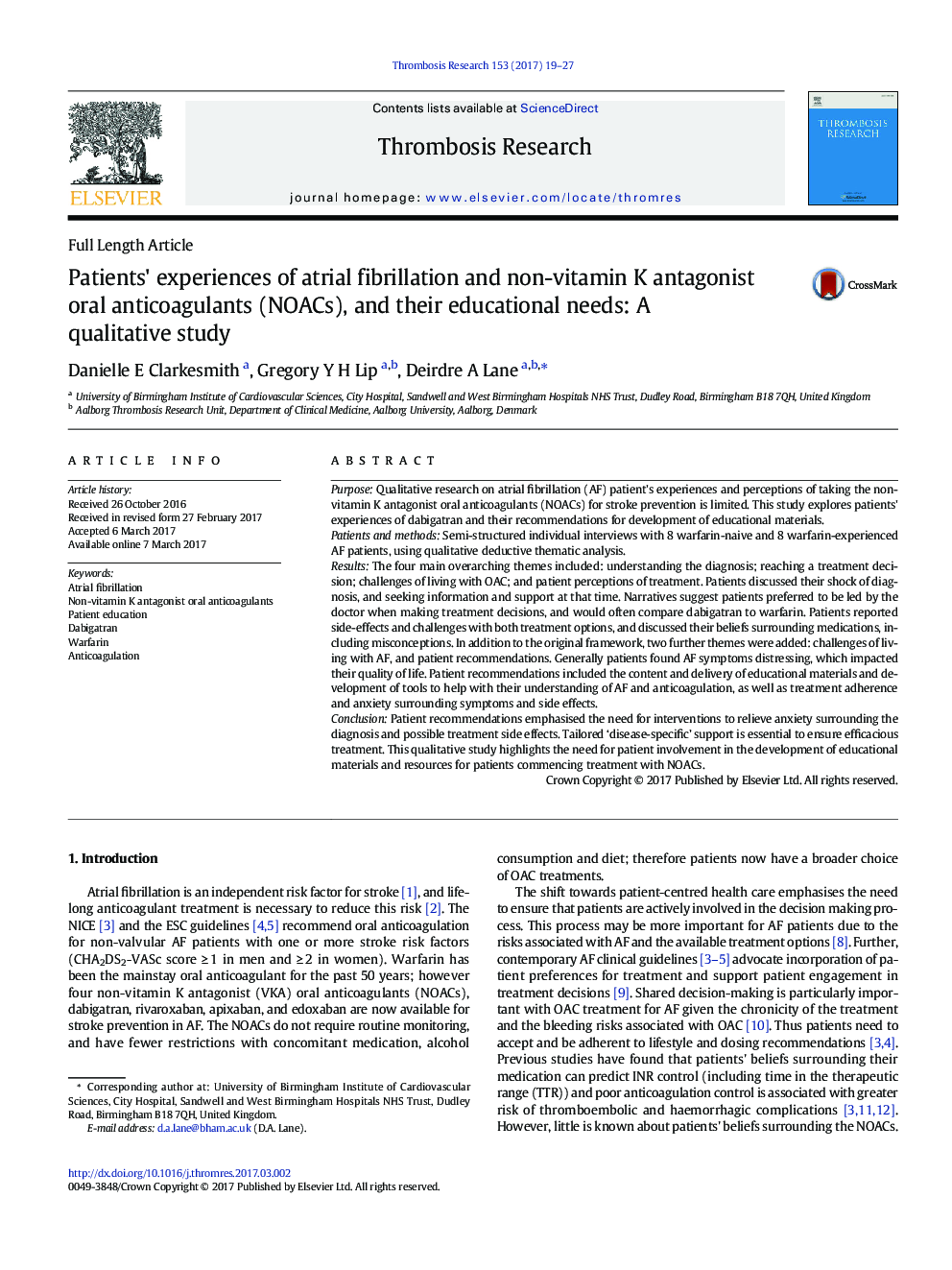| Article ID | Journal | Published Year | Pages | File Type |
|---|---|---|---|---|
| 5621959 | Thrombosis Research | 2017 | 9 Pages |
â¢Narratives present patient perceptions, experiences and understanding of NOACs.â¢Patients elicit shock and distress at diagnosis and need information and support at this crucial stage.â¢Patients' decision making process includes personal evaluation of the perceived benefits and concerns for treatment options.â¢Patients describe in detail the resources and types of support needed for the future.
PurposeQualitative research on atrial fibrillation (AF) patient's experiences and perceptions of taking the non-vitamin K antagonist oral anticoagulants (NOACs) for stroke prevention is limited. This study explores patients' experiences of dabigatran and their recommendations for development of educational materials.Patients and methodsSemi-structured individual interviews with 8 warfarin-naive and 8 warfarin-experienced AF patients, using qualitative deductive thematic analysis.ResultsThe four main overarching themes included: understanding the diagnosis; reaching a treatment decision; challenges of living with OAC; and patient perceptions of treatment. Patients discussed their shock of diagnosis, and seeking information and support at that time. Narratives suggest patients preferred to be led by the doctor when making treatment decisions, and would often compare dabigatran to warfarin. Patients reported side-effects and challenges with both treatment options, and discussed their beliefs surrounding medications, including misconceptions. In addition to the original framework, two further themes were added: challenges of living with AF, and patient recommendations. Generally patients found AF symptoms distressing, which impacted their quality of life. Patient recommendations included the content and delivery of educational materials and development of tools to help with their understanding of AF and anticoagulation, as well as treatment adherence and anxiety surrounding symptoms and side effects.ConclusionPatient recommendations emphasised the need for interventions to relieve anxiety surrounding the diagnosis and possible treatment side effects. Tailored 'disease-specific' support is essential to ensure efficacious treatment. This qualitative study highlights the need for patient involvement in the development of educational materials and resources for patients commencing treatment with NOACs.
